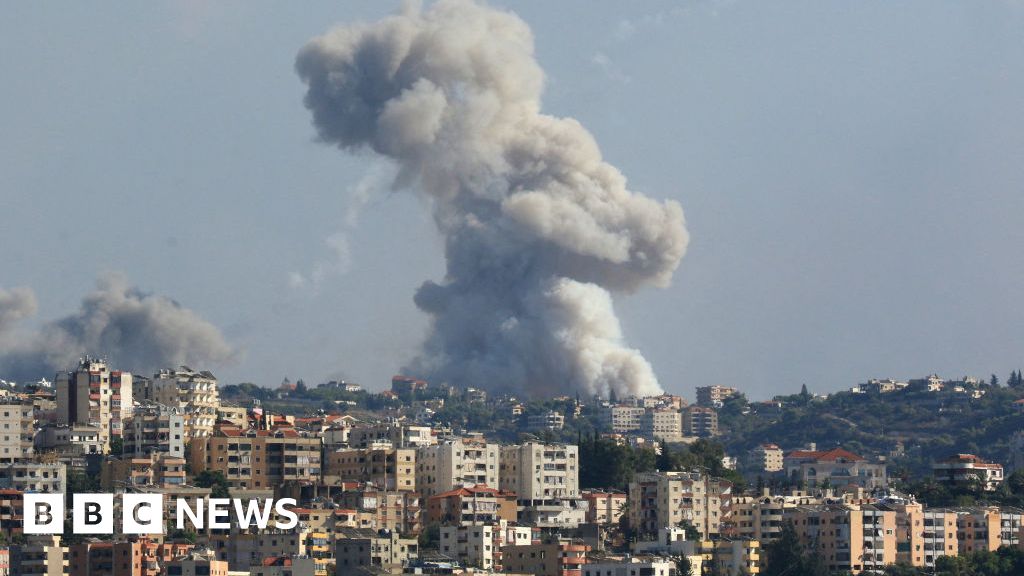https://ichef.bbci.co.uk/news/1024/branded_news/8447/live/f390a020-79c3-11ef-b282-4535eb84fe4b.jpg
Monday was the bloodiest day in Lebanon since Hezbollah’s 2006 war with Israel.
Israel launched a massive series of air strikes this morning that have so far killed 492 people according to the Lebanese government and the Israelis are warning of more attacks to come.
The war is escalating fast, a process that is being driven by the scale of Israel’s air offensive.
They are warning civilians to leave the areas they’re targeting. The next, they’ve said, will be the Bekaa Valley in the north-east of Lebanon which is a Hezbollah stronghold.
Even before the current escalation, well over 100,000 Lebanese had to leave their homes because of Israeli strikes, with no immediate expectation of being able to return.
We are seeing yet another very large escalation by the Israelis.
Perhaps their calculation is that they believe Hezbollah is in such a weakened position right now that this is their opportunity to really inflict some damage on it, and to change the strategic picture in the hills and towns on either side of the border between Israel and Lebanon.
While the Israeli-Hezbollah conflict has been going on for decades, the current war between them started the day after the Hamas attacks on 7 October last year.
Hezbollah started a limited but continuous campaign of rocket fire over the border, trying to tie down Israeli troops and damage Israeli property and people. Around 60,000 Israelis have been forced to evacuate to the centre of the country. In the last few days, returning them to their homes has been added to Israel’s list of war aims.
The US and UK, and other allies – and critics – of Israel believe that the only hope of cooling this dangerous crisis is to get a ceasefire in Gaza.
Hassan Nasrallah, the leader of Hezbollah, has said attacks on Israel will go on until a Gaza ceasefire happens. But it seems pretty clear at this point that neither the leader of Hamas nor the leader of Israel is prepared to go for the deal the US has put on the table.
The war itself has overwhelming support from Israelis, although Prime Minister Benjamin Netanyahu remains unpopular with significant parts of Israel’s electorate, despite an improvement in his poll ratings.
Many Israelis also think Netanyahu is an appalling leader who tells lies and has abandoned the hostages in Gaza. So he is a very controversial character, but bolstered in the parliament by the right wingers who support him, he is politically secure.
His decision to go on the offensive is risky.
While Hezbollah is wounded, it has plenty of capacity to hit back. And that is why Israel’s friends and enemies are still preparing for the worst.











